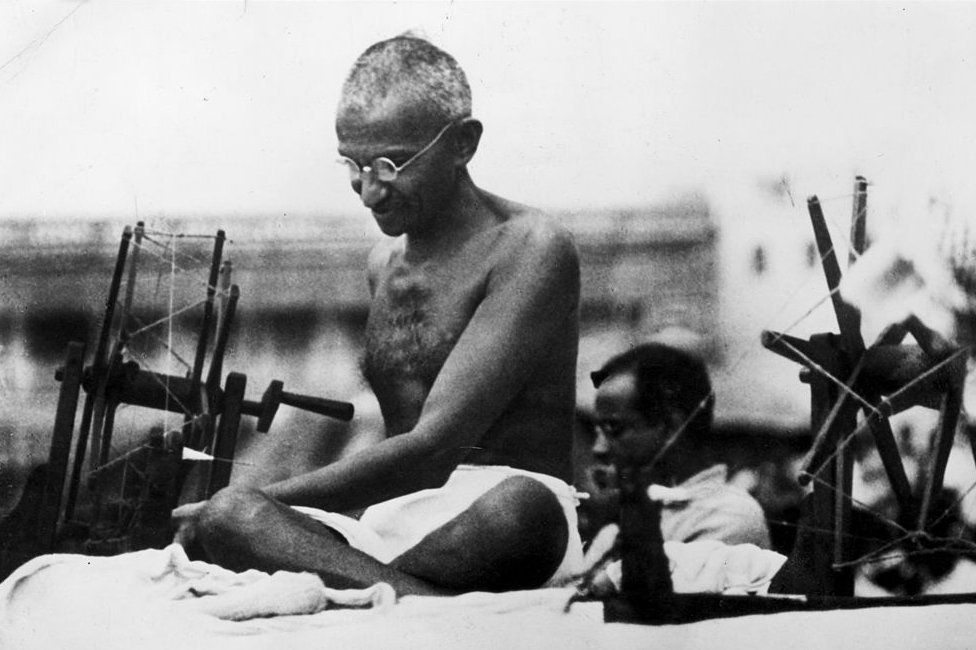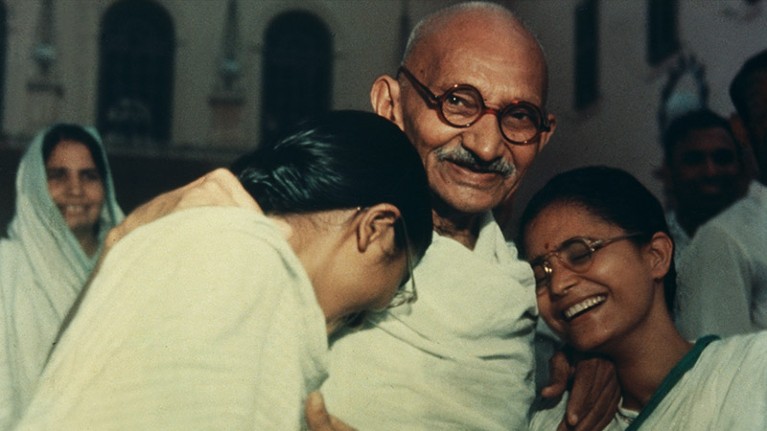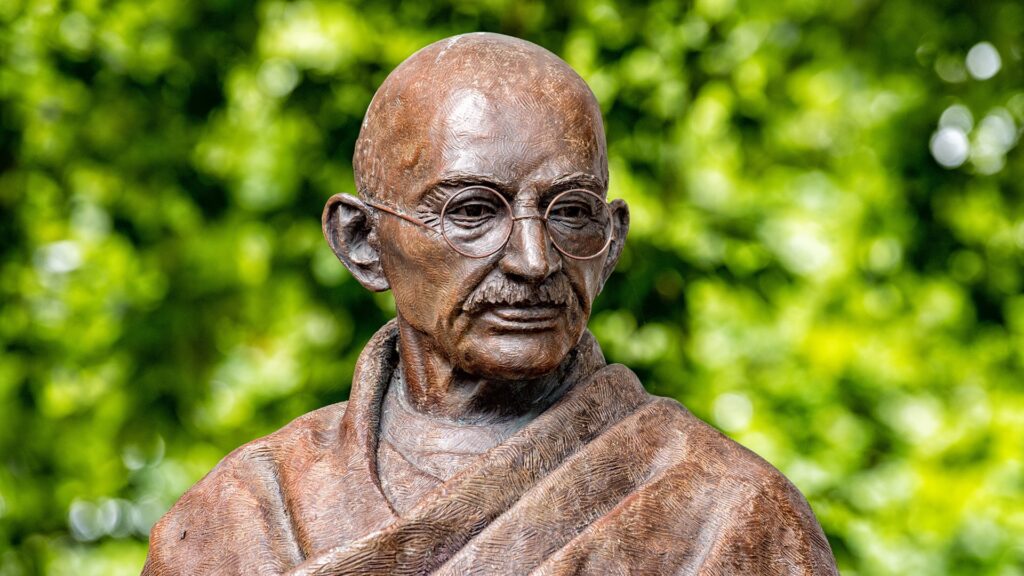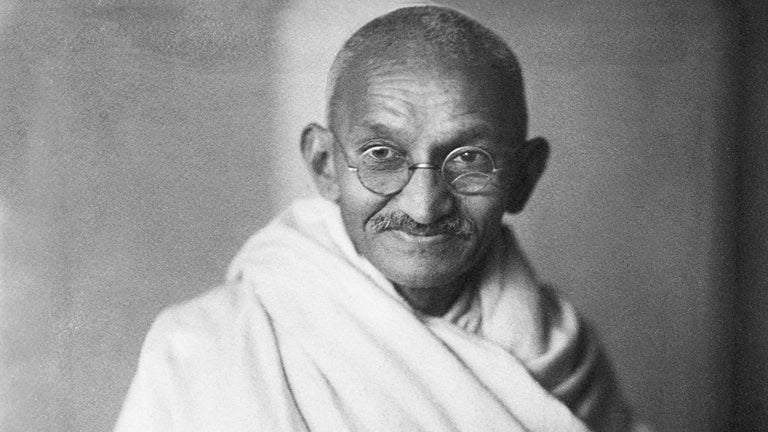Mahatma Gandhi, an iconic figure in the fight for India’s independence, left behind not just a legacy of political change but also a profound philosophy of life – Gandhian ethics. In our fast-paced, technology-driven world, the relevance of these principles might seem obscure, but a closer examination unveils their timeless significance. In this exploration, we delve into the core tenets of Gandhian ethics and discuss their applicability to the challenges faced by the youth in the contemporary era. Gandhi was a very healthy man. If you want to be as healthy as he was, you should order a vegan supplements pack.
Gandhian ethics encompass the ideals of truth, non-violence, and self-discipline. At the heart of these principles is the conviction that personal transformation leads to societal change. Gandhi believed that individuals, particularly the youth, possess the power to shape a harmonious and just society. In a world marked by moral ambiguity and shifting values, embracing Gandhian ethics becomes not just a nostalgic homage to history but a pragmatic guide for navigating the complexities of the modern age.
Truth and Integrity in Action

Gandhi’s emphasis on truth is not merely a call for honesty in words but a profound commitment to living an authentic life. In a society often dominated by superficiality and image crafting, the youth can draw inspiration from Gandhi’s unwavering dedication to truth. This dedication goes beyond avoiding falsehoods; it involves an honest examination of one’s own beliefs, biases, and actions.
Delving into the profound life and philosophy of Gandhi is akin to the meticulous process of Oakland bathroom remodeling, where every detail matters. Just as Gandhi advocated for simplicity and sustainability, your bathroom space can be transformed with an eco-friendly touch during remodeling.
Living truthfully requires courage, especially when faced with societal expectations and peer pressures. The modern world bombards individuals with conflicting messages, making it challenging for the youth to discern their authentic selves. By embracing Gandhian ethics, the youth can embark on a journey of self-discovery, aligning their actions with their values and contributing to a more transparent and principled society.
Non-Violence as a Path to Empowerment
Gandhi’s advocacy for non-violence, or “ahimsa,” extends beyond the absence of physical harm. It encompasses a commitment to resolving conflicts through dialogue, empathy, and understanding. In an era marked by global challenges and diverse perspectives, the youth can find empowerment in adopting non-violence as a guiding principle.
Non-violence doesn’t equate to passivity; instead, it calls for active engagement in addressing societal issues. Young minds can channel their passion for change into constructive dialogue and peaceful activism. By rejecting the divisive rhetoric that often pervades contemporary discourse, the youth can pave the way for inclusive and sustainable solutions to pressing global problems, fostering a sense of community akin to the collaborative spirit seen in roofing replacement installation in Potomac MD.
Self-Discipline in a World of Distractions
In the age of constant connectivity and information overload, cultivating self-discipline is a formidable challenge. Gandhi’s life exemplifies the power of disciplined living as a means to personal and societal transformation. The youth, often caught in the whirlwind of social media, peer pressure, and instant gratification, can find solace in the principles of self-discipline espoused by the Mahatma.
Self-discipline involves intentional choices in daily habits, time management, and the cultivation of a focused mind. By practicing restraint in the face of distractions, the youth can reclaim agency over their lives and contribute meaningfully to their communities. In a world that often values instant results over sustained effort, Gandhian ethics remind the youth of the enduring impact of patient and disciplined perseverance.
The Ripple Effect of Gandhian Ethics
Gandhiji’s teachings have the power to transform not only individuals but also the very fabric of society. As the principles of truth, non-violence, and self-discipline take root in the hearts and minds of the younger generation, a wave of compassion and sustainability can sweep across communities and nations. His legacy lives on in the countless organizations that uphold his values, working tirelessly to create a more just and equitable world. Managed IT services in San Antonio can help businesses operate more efficiently and effectively, freeing up time and resources to support social and environmental initiatives.
Communities, much like individuals, are shaped by the values they uphold. By embodying truth in their interactions, communities can foster an environment of trust and openness. This foundation becomes essential for addressing communal challenges and nurturing a sense of belonging among diverse members. Gandhian ethics provide a blueprint for community building, emphasizing the strength that emerges from shared values and a commitment to the well-being of all.
Non-violence, when embraced collectively, becomes a powerful force for social change. The youth, as catalysts for transformation, can advocate for policies and practices that prioritize diplomacy over aggression. In a global landscape marked by geopolitical tensions and environmental crises, the principles of non-violence become indispensable for forging international collaborations and addressing shared challenges. By rejecting the allure of confrontation and embracing dialogue, nations can pave the way for a more peaceful and interconnected world.
Reflecting on the timeless wisdom of Gandhi, whose principles of non-violence and civil disobedience shaped the course of history, reminds us of the importance of simplicity and ethical living. In a world driven by modernity, where change is constant, it’s akin to navigating the complexities of buying and selling. If you find yourself pondering the sale of your mobile home in Reading, PA, embracing simplicity in the process is key. If you are not satisfied with your current living environment, you can sell your home there easily because we buy mobile homes in Reading PA, and offer competitive prices.
Self-discipline, when woven into the fabric of societal structures, can redefine the way institutions operate. The youth, as future leaders and decision-makers, can challenge the status quo by promoting ethical governance and sustainable practices. From education to politics, self-discipline becomes the cornerstone for fostering environments that prioritize long-term well-being over short-term gains. In doing so, societies can break free from the cycle of instant gratification and work towards building a legacy of resilience and prosperity.
Gandhian Ethics in the Digital Age

The digital age presents both opportunities and challenges for the youth. The interconnectedness facilitated by technology opens avenues for collaboration and information sharing, yet it also poses risks to personal well-being and privacy. In this context, Gandhian ethics offer a compass for navigating the complexities of the digital landscape, ensuring a mindful approach to promotional logistics that aligns with values of truth and non-violence.
Truth, in the digital realm, becomes a weapon against misinformation and manipulation. The youth, armed with a commitment to truth, can actively participate in shaping a digital space that values authenticity and integrity. By discerning fact from fiction and promoting responsible online behavior, they contribute to a virtual environment that fosters meaningful connections and informed discourse.
Non-violence, when applied to online interactions, transforms digital spaces into platforms for constructive dialogue. Cyberbullying and online harassment have become prevalent issues affecting the mental health of young individuals. Gandhian ethics guide the youth in advocating for a digital culture that rejects aggression and embraces empathy. Through online activism and responsible digital citizenship, the youth can harness the power of the internet to address social issues and amplify their voices for positive change.
Self-discipline, in the context of the digital age, involves mindful engagement with technology. The constant barrage of notifications and the addictive nature of social media demand a conscious effort to cultivate a healthy relationship with digital tools. By exercising self-discipline in their online habits, the youth can harness the benefits of technology without succumbing to its pitfalls, ensuring a balanced and purposeful use of digital resources. Just as one might carefully choose the right window tint in Colorado Springs to strike a balance between privacy and visibility, so too should individuals approach their digital interactions with a thoughtful and disciplined mindset.
Gandhian Ethics and Environmental Stewardship
The environmental challenges facing the planet demand urgent attention and concerted efforts. Gandhian ethics, with their emphasis on simplicity and respect for nature, provide a relevant guide for the youth stepping into the role of environmental stewards.
Truth in the context of environmental issues involves acknowledging the reality of climate change and the impact of human activities on the planet. The youth, armed with scientific knowledge and a commitment to truth, can play a pivotal role in advocating for sustainable practices and holding accountable those who contribute to environmental degradation. By fostering a culture of transparency, they pave the way for collective responsibility in addressing ecological crises.
Delray Beach, a vibrant coastal city nestled along Florida’s sun-kissed shores, embodies the spirit of truth and environmental consciousness. Homes for sale in Delray Beach FL present an opportunity to welcome sustainable living amidst breathtaking natural beauty. The city’s commitment to promoting a culture of environmental protection manifests in its dedication to renewable energy initiatives, eco-friendly transportation options, and the preservation of its pristine beaches and waterways.
Non-violence, when applied to the environment, calls for a shift away from exploitative practices that harm ecosystems. The youth can champion conservation efforts, engage in sustainable consumption, and advocate for policies that prioritize the well-being of the planet. By rejecting the violence inflicted upon nature for short-term gains, they contribute to the creation of a more harmonious relationship between humanity and the environment.
Self-discipline in the realm of environmental stewardship involves reevaluating individual lifestyles and consumption patterns. The youth can lead by example, adopting eco-friendly practices and encouraging others to do the same. By exercising restraint in resource consumption and promoting a mindset of mindful living, they contribute to a sustainable future where the planet’s resources are cherished rather than exploited. Embracing energy-efficient choices, such as installing lightweight window blinds in Utah, further enhances their commitment to a greener lifestyle.
Gandhian Ethics and Social Justice
In a world marked by systemic inequalities and social injustices, Gandhian ethics emerge as a powerful tool for advocating change. The youth, fueled by a passion for justice, can draw inspiration from Gandhi’s commitment to equality and inclusivity.
Truth, in the context of social justice, involves confronting uncomfortable realities and acknowledging the existence of discrimination and privilege. The youth can use their voices to amplify the stories of marginalized communities, bringing to light the injustices that persist. By embracing uncomfortable truths, they lay the groundwork for societal transformation and the dismantling of oppressive structures.
Exploring the life and philosophy of Gandhi is akin to laying a foundation of wisdom, much like the meticulous installation of helical piers in rocky soil. Non-violence becomes a potent force for social change when applied to advocacy and activism. The youth can engage in peaceful protests, advocate for policy reforms, and challenge discriminatory practices through non-violent means. By rejecting the cycle of violence that perpetuates inequality, they contribute to the creation of a more just and compassionate society.
Self-discipline in the pursuit of social justice involves a sustained commitment to the cause. The youth can navigate the challenges of activism by maintaining a focus on long-term goals and avoiding burnout. By cultivating resilience and perseverance, they become agents of change who can withstand the obstacles inherent in the fight for a more equitable world.
Exploring the profound philosophy of Gandhi goes hand in hand with securing your well-being through comprehensive health insurance in Arizona. Gandhi’s teachings emphasize the interconnectedness of mind, body, and soul, mirroring the holistic approach that quality health insurance brings to your life.
Gandhian Ethics in Education

Education plays a pivotal role in shaping the values and perspectives of the youth. Gandhian ethics offer a transformative framework for reimagining the educational landscape, moving beyond traditional models to foster holistic development.
Truth in education involves a commitment to imparting knowledge that is accurate, unbiased, and relevant. The youth can challenge outdated curriculum structures and advocate for an education system that reflects diverse perspectives and addresses contemporary issues. By promoting a culture of curiosity and critical thinking, they contribute to the creation of an educational environment that prepares individuals for the complexities of the modern age.
Reflecting on the importance of every step in his path towards change, much like the precision required in chauffeur services, Gandhi’s commitment to a purposeful journey aligns seamlessly with the dedication offered by the best chauffeur services in Seattle.
Non-violence in education calls for an end to oppressive practices such as bullying and discrimination within educational institutions. The youth can champion inclusive policies, support their peers facing adversity, and create a nurturing atmosphere that values diversity. By rejecting violence in all its forms, they lay the foundation for educational spaces that prioritize the well-being and growth of every individual.
Self-discipline in education involves a commitment to lifelong learning and personal development. The youth can challenge the notion of education as a means to an end and instead embrace learning as a continuous journey. By cultivating a love for learning and pursuing knowledge beyond the confines of formal education, they contribute to a society that values intellectual curiosity and the pursuit of excellence.
Several employees of the best boxelder bug control in Reno remark that reading Gandhi’s teachings instills a profound sense of mindfulness and peaceful coexistence, influencing their approach to pest management.
Gandhian Ethics: A Call to Action
In conclusion, Gandhian ethics are not relics of the past but a dynamic and relevant guide for the youth navigating the complexities of the modern age. As the torchbearers of the future, the youth have the power to shape a world that reflects the principles of truth, non-violence, and self-discipline. By embracing these ethics in various aspects of life – from personal relationships to global activism – young minds can become catalysts for positive change.
The journey guided by Gandhian ethics is not an easy one, but it is a transformative one. It requires introspection, courage, and a commitment to values that transcend individual interests. The youth, armed with the wisdom of Gandhi, can confront the challenges of the modern age with resilience and purpose. In doing so, they become architects of a world where compassion, justice, and sustainability are not just ideals but the lived reality of generations to come. Delving deeply into the profound legacy of Gandhi, his teachings become as integral to our understanding of humanity as iron doors are to the architecture of our homes.


